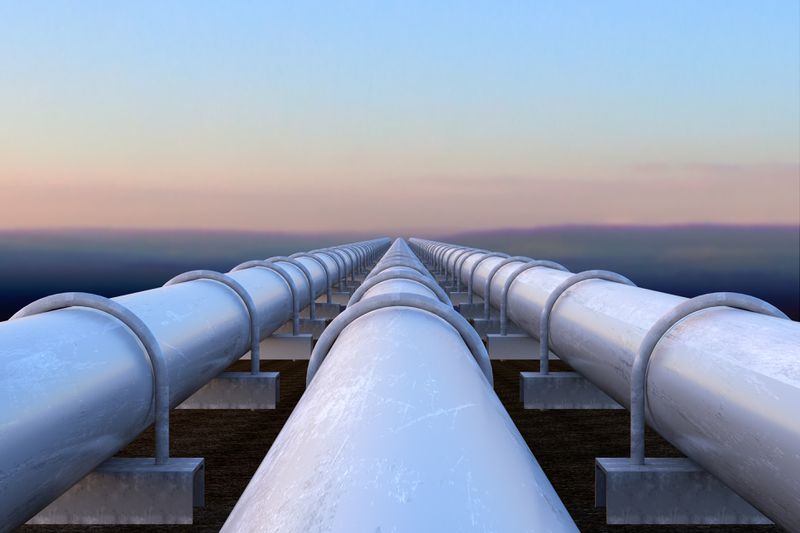Environmental degradation, loss of endangered species, increases in greenhouse gas emissions—these are just some of the negative effects that the GNL Québec-Gazoduq Énergie Saguenay Project is predicted to have on Canada’s natural environment. The project, which proposes the construction of a 782-kilometre pipeline to carry natural gas from Northern Ontario to Quebec, is the final link in a series of transportation networks connecting Albertan oil fields with a planned natural gas liquefaction complex in Port Saguenay, Quebec. The McGill Tribune breaks down the current state of affairs and potential risks the pipeline poses to Canada’s environment and wildlife.
Liquefied natural gas (LNG) is a form of natural gas that has been chilled to extremely low temperatures to cause a temporary phase transition from a gaseous to a liquid state. Once in liquid form, the volume of natural gas shrinks to 1/600th of its initial volume, rendering it economically feasible to transport over long distances. Although fossil fuel industry proponents claim that LNG is a form of “clean-energy” when compared to coal and traditional fossil fuels, environmental advocacy groups are not convinced that this is the case.
Since its proposal in 2014, the GNL-Saguenay Project has been met with overwhelming pushback from scientists and conservation authorities. Still, Quebec’s Minister for Regional Economic Development, Marie-Eve Proulx, touted the project’s potential for increasing fiscal growth. GNL estimates that the project will create some 7000 jobs, at an approximate construction cost of $14 billion.
The Government of Quebec’s upcoming decision on whether to approve the project, expected sometime in 2021, follows years of condemnation of similar pipeline projects across Canada.
In 2015, TransCanada abandoned a plan to build a port in Cacouna, Quebec due to concerns regarding its potential impact on local wildlife. The port was proposed to serve the Energy East pipeline and was slated to carry one million barrels of oil over 1,500 kilometres daily. The project was later cancelled altogether amidst strong pushback from a number of Indigenous and environmental groups.
In British Columbia, an extension of the Trans Mountain pipeline through coastal waters near Vancouver has prompted nearly three years of legal challenges by environmental activists and First Nations communities. Among the most common concerns is the pipeline’s impact on endangered marine species.
In Quebec, administrators behind the GNL-Saguenay Project have yet to clarify how they plan to implement their alleged compliance with provincial and federal environmental protections. Although GNL has declared that they will abide by government regulations, estimates that the project would contribute 7.8 million tonnes of greenhouse gases to the atmosphere annually, increasing Canada’s net natural gas exports by 27 per cent, have questioned the sincerity of their promise. Although Énergie Saguenay has disregarded this claim as false, the corporation’s environmental impact report—which dedicates only one page and a half to the environment, out of a total of 90 pages—makes no mention of this, nor provides a factual basis to refute scientist’s claims.
Elsewhere in North America, pipelines have been shown to have other catastrophic environmental effects. Pipeline projects in Alaska and rural Pennsylvania have led to habitat destruction and forest fragmentation, with adverse consequences for native wildlife. The most recent 2019 report from the Intergovernmental Science-Policy Platform on Biodiversity and Ecosystem Services suggested that such changes in land use could place up to one million species in danger of extinction.
In June of 2019, a group of 150 scientists from across Quebec signed an open letter calling for Prime Minister Justin Trudeau and Quebec Premier François Legault to reject the GNL-Saguenay Project on the basis of protecting the natural environment.
“In this era of climate emergency and collapsing biodiversity, we believe that scientists have a duty to speak out on the major projects that will determine the future of our civilization,” the scientists wrote in the letter, published in Le Devoir. “Taken as a whole, this project would therefore further alter the terrestrial and marine ecosystems on which life on Earth depends.”










Careful here, your have become privileged enough to forget what oil and gas has brought to our lives. We no longer freeze to death. We are able to travel vast distances at a low cost. You consume cheap products. We are able to transport food and goods across countries. You are able to communicate in real-time with people on the other side of the world. You have medicine. All of this was made and is made possible because of oil and gas. If we take these resources away, our economy will crash and we will return to a vulnerable state.
True but advances in technology enable us today to choose from multiple sources of energies, some more responsible than others. It is our responsibilities to now transfer our energy needs towards cleaner, environmentally friendly sources instead of keeper the ones that is is presently destroying our habitat and if continued will extinct ourselves and all other species on earth. Lets realized the only reason why Oil , Gas, Coal and Meat are still in business is because they have imbedded and bribed the politicians for profits continuity.
Stop!!!
Well said!!! So true !!! Transfer our energy needs towards cleaner, environmentally friendly sources!!! it is our responsibility…. If we continue and maybe to late ??? It is destroying our habitat … Will extinct ourselves and all Other Species on ✋ .